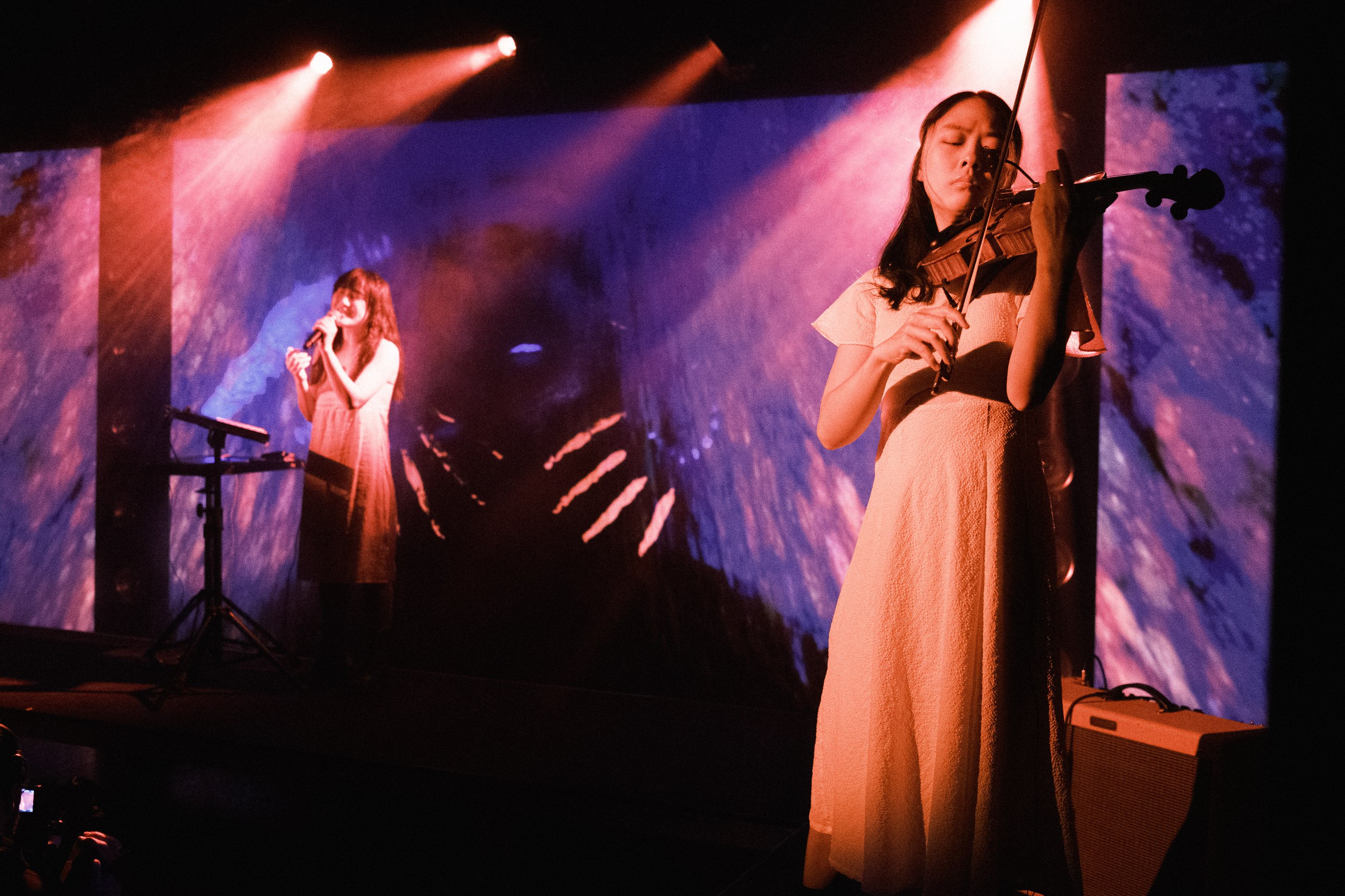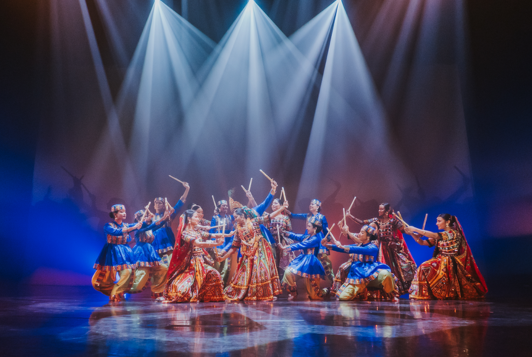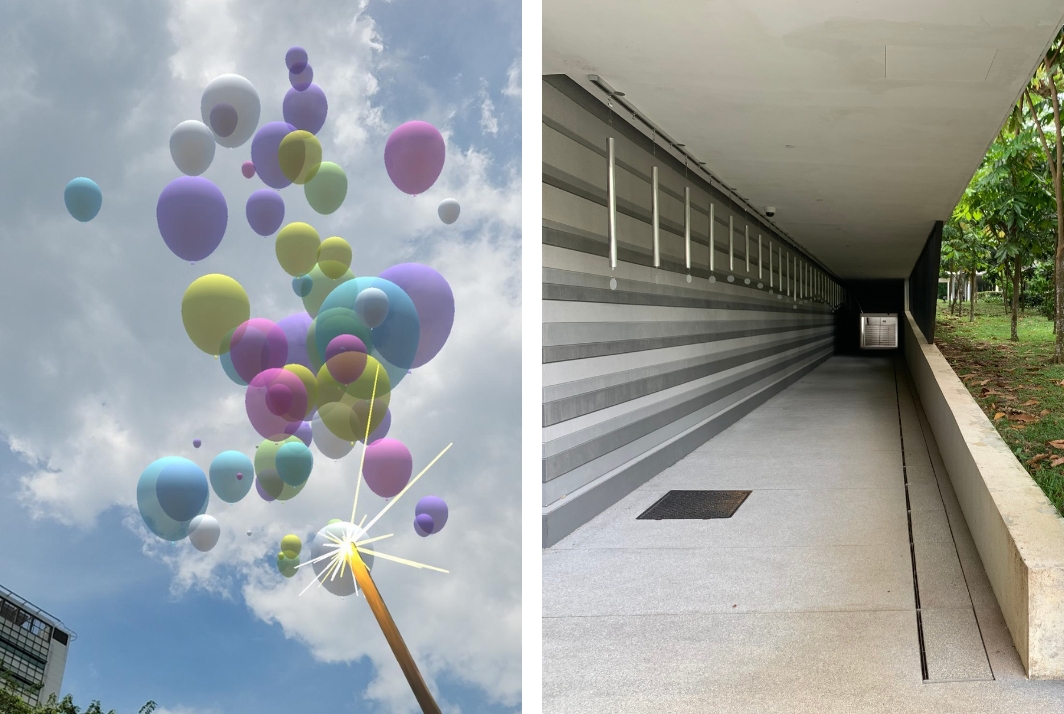Show producer, project manager, violinist, and a champion of social causes through art. These are just some of the many facets of Elicia Neo (Music ’22), the latest recipient of the Paul Abisheganaden Grant for Artistic Excellence.
At just 25 years of age, Elicia has amassed over a decade of performing experience in the local and international music scene. She is a current Berklee College of Music student at New York City, pursuing a major in Live Music Production and Design. Elicia retells her inspiring artistic journey with us, where she pays tribute to the many educators, peers, and industry practitioners who have shaped her path and vision.
Congratulations on receiving the Paul Abisheganaden Grant for Artistic Excellence! When did you first learn about the grant?
I have heard about the grant multiple times throughout my years at YSTCM, as many musicians who I respect have been awarded the grant and gone on to achieve incredible and varied feats in the music scene. The grant motivated me to apply for the Bang on the Can Festival, which I wanted to attend for the longest time but was held back by distance and the tuition fees. Now that I am studying in the States, and the Paul Abisheganaden Grant was calling for applications, it felt like things were falling into place.
Who introduced you to the world of music?
I started learning the violin when I was five with my mum! My mother really loves music and wanted to cultivate interest in me and my siblings. One of my earlier cherished memories was of us playing together in front of the teacher and learning the violin together.
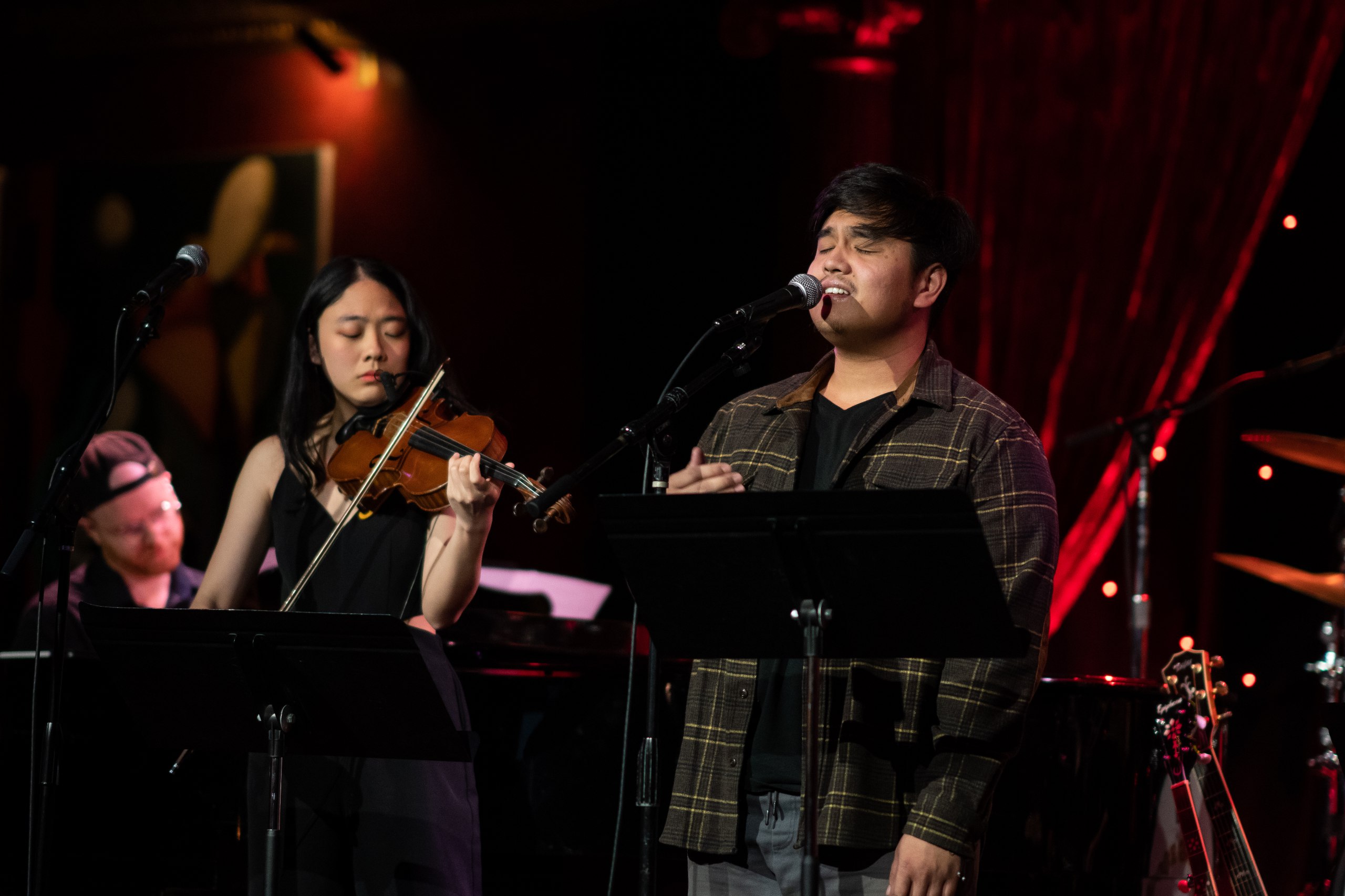
You graduated with a Bachelor of Music from YSTCM. Where did you pursue music before your NUS days?
I discovered the magic of orchestra music during my teenage years when I joined the Singapore National Youth Orchestra. I received amazing opportunities such as playing with the orchestra at the Young Euro Classic Festival in Berlin, at the Singapore Golden Jubilee Celebrations at Parliament House and at the Lying-in-State of Mr Lee Kuan Yew as 2nd Violin Principal.
In my gap year before entering NUS, I started volunteering with the Orchestra of the Music Makers where I worked on projects and learnt about the inner workings of an orchestra.
What led you down the contemporary classical path?
My interest in contemporary classical music started from wanting to know what my choral friends were expressing through their music, including views which they couldn’t say aloud. As a person who was adamant about not being able to create music and only play them, I was fascinated by how they dared to explore the vulnerabilities of their unique voices through composition.
From then, I started playing in collaborative modules where we premiered different students' pieces in string quartets, and then started playing in YSTCM’s Opus Novus, a student contemporary music ensemble. Here, I got to enjoy a variety of different influences from pieces recommended and introduced by our professors Lien Boon Hua and Martin Jaggi.
Who is one of your greatest musical influences?
My violin professor, Mr Ng Yu-Ying has always taught me to approach every single piece through, every note and pause and detail, musicality and intent, without forgetting the big picture. I came to find this instruction and teaching style incredibly powerful in shaping the way I think about my practice.
What would you say is the most cherished memory at NUS?
I have so many treasured memories about my NUS life that I cannot even begin to narrow them down! I had amazing friends from my time at Tembusu College that opened me to a life outside of music, and challenged my assumptions to the role of arts and artists in today’s world, and ultimately who they are for.
YSTCM was an incredibly close-knit and supportive community that once I left I realised I took for granted. My peers have always cheered for each other to succeed. These included coming by one another’s practice rooms to listen in and giving feedback for improvement, sharing pencils, fingerings and notes, listening anxiously for our friends and supporting them outside of the exam room.
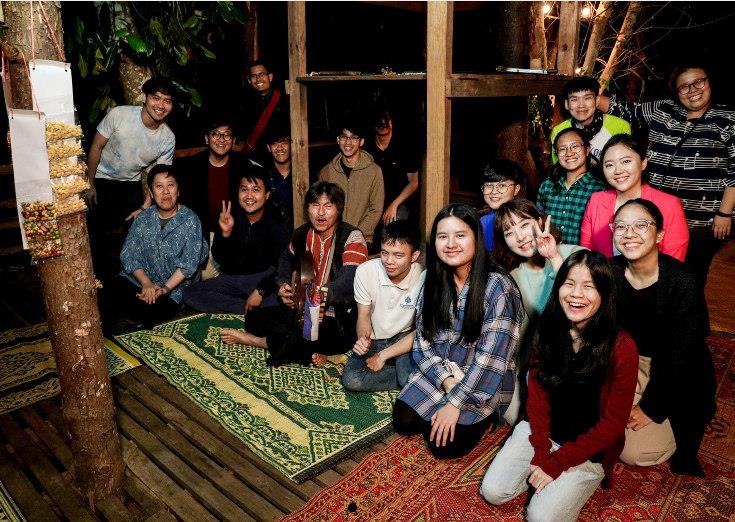
Your resume includes projects in support of groups with diverse learning needs. Could you tell us more about them?
In 2019, my peers and I produced Deep Blue Sea, a relaxed classical concert for children with sensory difficulties, their family and caretakers. About 100 participants from Friends of Autism Spectrum Disorder (ASD) families attended. My team and I designed, scripted, arranged, and performed musical pieces set to a sea-themed storyline. featured multisensory elements where our audience interacted with performers, saw and touched handmade ‘sea creatures’ like starfish and clams, and played instruments such as the harp, bassoon, flute, and marimba. Although there were many things that could be improved upon, it was a project that has changed me and my friends' attitudes on music performances: how we perform and share our music not just for enjoyment, but to change perspectives and share a message to positively impact our communities.
Currently at BerkleeNYC, I am working with Casey Hall-Landers on a multi-sensory dance piece and art exhibition exploring our collective journeys with chronic pain and the strains of arts-inflicted repetitive injuries. Our hope is to use technology through motion sensors to create generative visuals and trigger sounds (recorded from the violin through various extended techniques). Such accessible design allows an audience with diverse needs to relate to or empathise with those suffering from invisible pain.
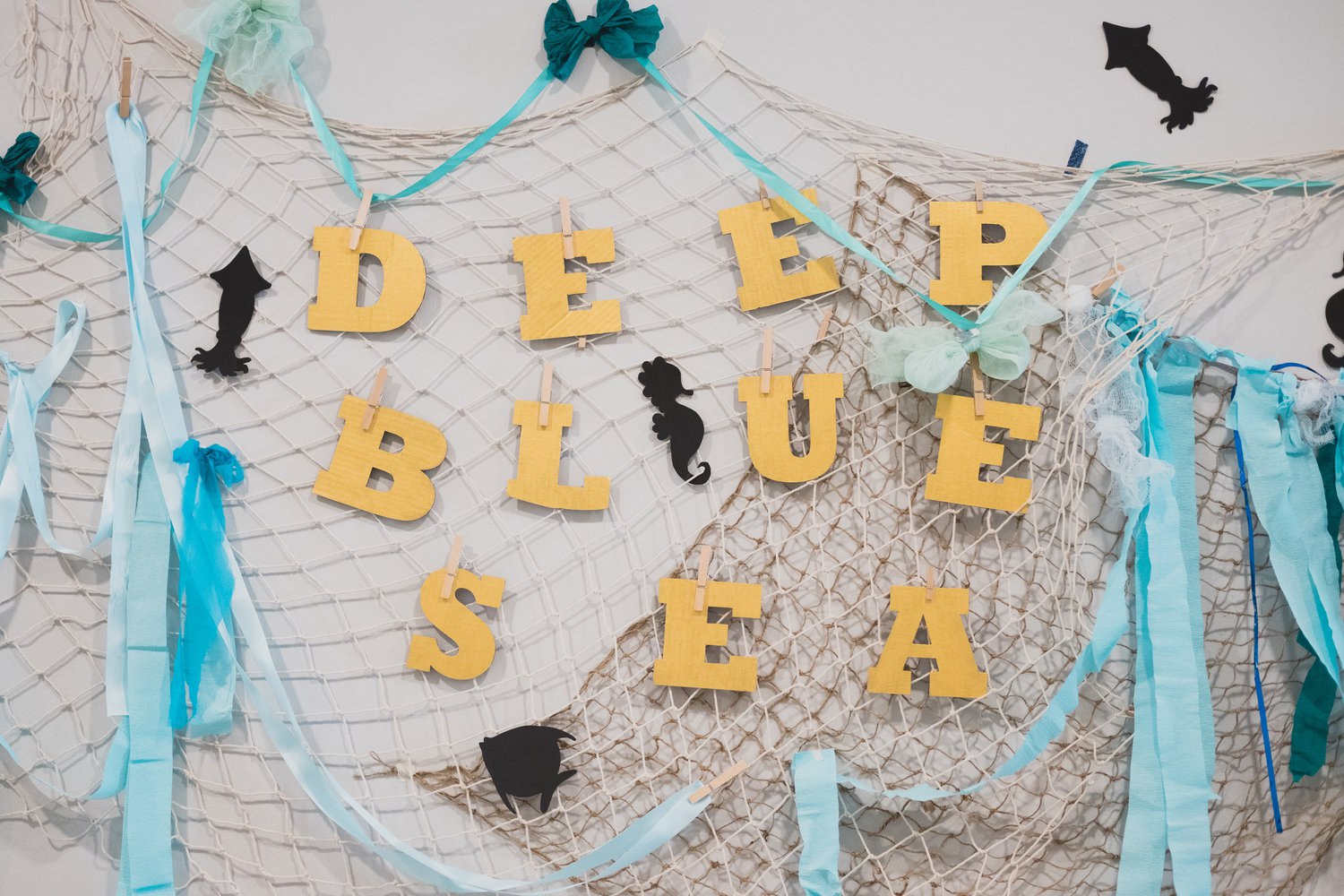
What are your immediate plans now that you have received the grant?
As a musician, I am interested in making music in an environment where each participant is enthusiastic and passionate about interdisciplinary and contemporary arts. I have attended the Britten-Pears Young Artist Program in November 2022, and will be participating in the Bang on a Can festival next. Festivals like these bring musicians from all backgrounds together to hone their skills, and create a whole greater than the sum of its parts, and I have learnt so much.
Additionally, I am looking forward to studying with Todd Reynolds and learning more about his workflow in performance and how he brings technology onto the classical stage. I am in the process of learning Ableton Live (a digital audio workstation), and Touchdesigner (a programming language for multimedia content) to generate visuals for my performances. Working with Reynolds would be the next guiding elements of my artistry, which I hope would merge my ideas and skills in a cohesive and coherent manner through performance.
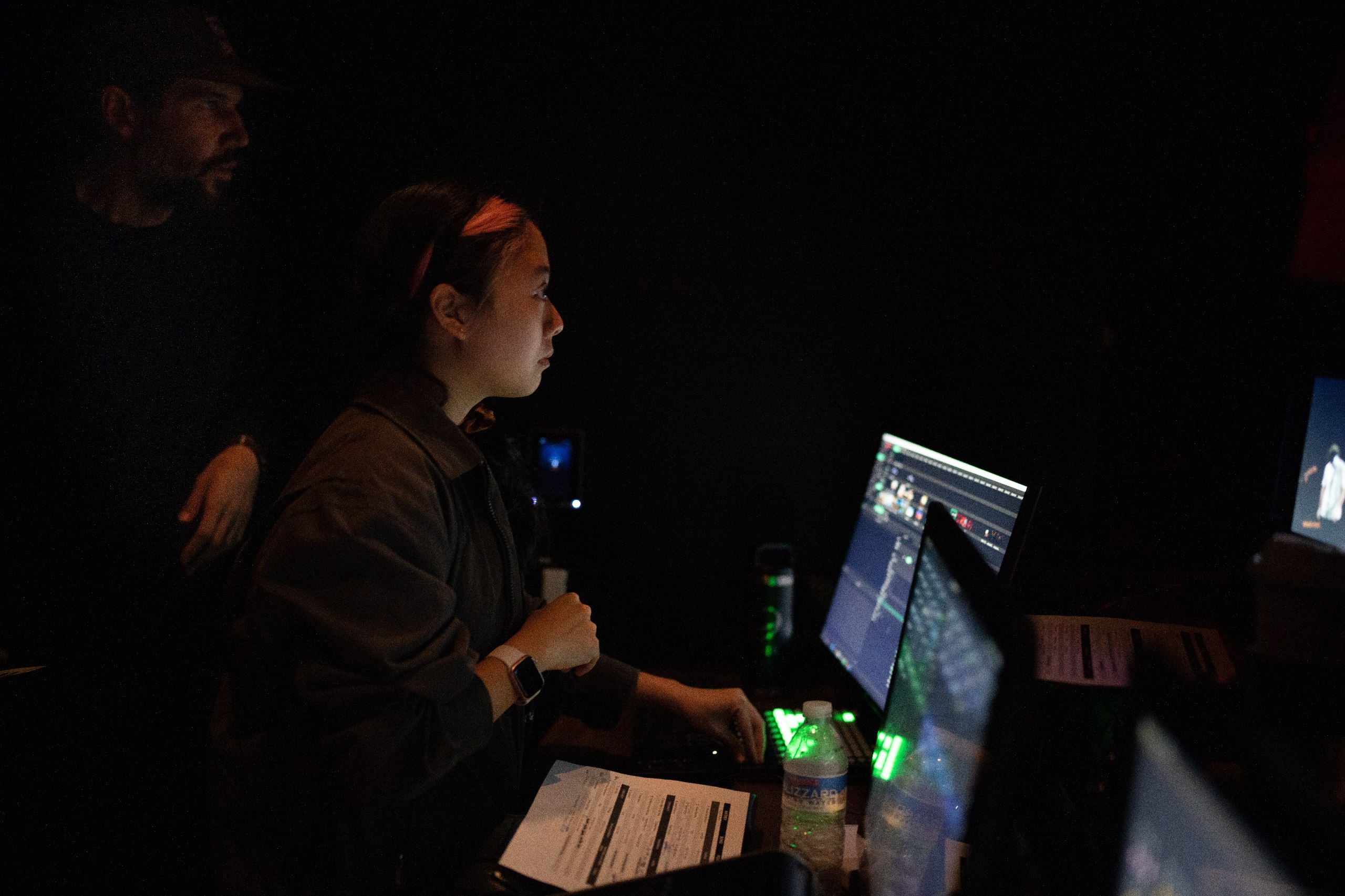
“Administered by NUS Centre for the Arts, the $10,000 Paul Abisheganaden Grant for Artistic Excellence was set up in memory of the late Singaporean music pioneers and Cultural Medallion winner. Each year, it is awarded to NUS students or alumni for their outstanding contribution to performing arts.”
– Centre for the Arts, Office of Student Affairs
Share:
Contributor
Office of Student Affairs


